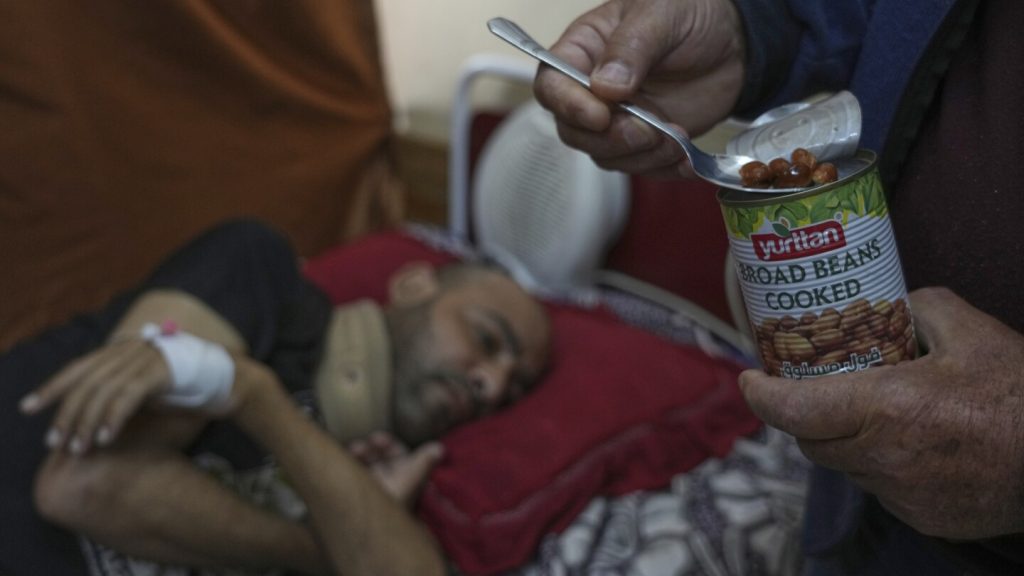Struggles of Feeding Hospitalized Loved Ones
In Khan Younis, Gaza Strip, Asmaa Fayez shared how she spent a significant amount to purchase a few zucchinis at a local market. She cooked them with rice and took the meal to her 4-year-old son, who has been hospitalized for a week. This soup was his only meal for the day, and he asked for more.
“It’s all finished, darling,” Fayez gently responded. However, she mentioned that this was a better option compared to the canned beans and tuna she usually brings.
Hospital patients are particularly vulnerable as many Palestinians in Gaza struggle to find food. With Israel’s blockade on essential supplies lasting for over three months, families must bring whatever they can find for their hospitalized relatives.
Dr. Khaled Alserr, a general surgeon at Nasser Hospital, reported that most patients have lost weight, particularly over the past two months, and nutritional supplements are scarce. “Our hands are tied when it comes to making the best choice for patients. Choices are limited,” he said.
Escalating Hunger Due to Diminishing Supplies
According to aid organizations, malnutrition is rising in Gaza, impacting both children and adults. Thousands of children have shown signs of acute malnutrition, and the UN estimates that about 16,000 pregnant women and new mothers face similar issues this year.
Since the blockade began on March 2, food supplies have dwindled. Many aid groups have halted food distribution, bakeries have closed, and remaining charity kitchens are also shutting down due to lack of supplies. Markets are primarily offering canned goods and a limited amount of vegetables, with prices increasing significantly.
Fayez’s son, Ali al-Dbary, was hospitalized for a blocked intestine and severe cramps, which Fayez suspects is linked to his diet of mostly canned foods. She spent around $10 per kilogram for the zucchinis, a drastic increase from less than a dollar before the conflict. Doctors have indicated the hospital lacks a functioning scanner to provide proper diagnosis and care.
Concerns Over Aid Distribution Plans
Israeli officials claim sufficient food entered Gaza during a two-month ceasefire earlier this year; however, rights groups label the blockade a “starvation tactic” and potential war crime. Israel’s recent proposals to control aid distribution using private contractors have raised concerns among the UN and other aid organizations, as it could limit access to aid and violate international laws.
Patients receiving care and their families who are struggling to feed them would face even more challenges under Israel’s proposal, making it difficult to reach aid. Compounding the issue, Asmaa Faraj, a 19-year-old patient recovering from an airstrike, had only a small bag of dates and some water, illustrating the severe lack of nutrients available to many.
Another patient, Sobhi al-Bursh, who was injured in an airstrike, is limited to a meager diet due to high costs, voicing his need for proper nutrition to aid his recovery. “Everything is expensive,” he said, reflecting on the drastic changes to his diet and its negative impact on his health.
For ongoing coverage of the conflict, follow AP’s updates at https://apnews.com/hub/israel-hamas-war.



